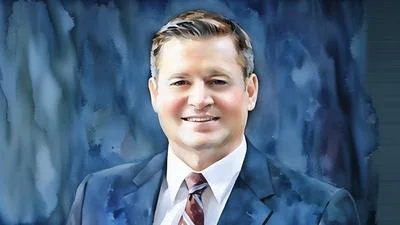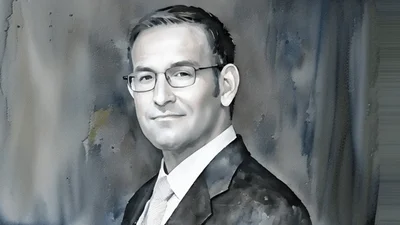Harry Moser is the founder of the Reshoring Initiative. He was the President of GF Machining Solutions.
This transcript has been edited for length and clarity.
Federal Newswire: What factors led us to build China into our supply chains?
Moser: Overwhelmingly, price. The China price on average is about 65% of our price. You can see companies look at that and they say, ‘Well, if I don't do it, my competitors are going to do it. They'll put me out of business.’
Federal Newswire: Does China’s advantage result from just working harder?
Moser: I read articles that talk about something like $300 billion in subsidies for their industries, and I haven't been able to figure out if that's annual or if it's over a couple of years. Noted experts [and] economists would say…if someone else wants to make this stuff for you a lot cheaper than we can make it, we should take all we can get.
My response is that if all of our manufacturing disappears and we can't make anything for the military, we're entirely dependent on them. Is that okay? That's been the attitude of the mainstream, academic economists, that if they can do something cheaper, let them do it cheaper. It turns out that the millions and millions of people who lost their jobs due to offshoring have not found viable, acceptable alternative employment.
The U.S. is not able to properly support our military because we can't make howitzer shells, we can't make bullets, we can't make tanks, we can't make anything fast enough to support the little bit of engagements that are going on right now around the world.
We need to strengthen not just the defense industry, but the overall U.S. manufacturing industry. If you go back to World War II, we were able to pull people from making cars and making whatever to make [military material]. For example, at Singer Sewing Machine during World War II, my father was making bombs for the Air Force, but if that factory hadn't been there, they wouldn't have had him. They wouldn't have had the equipment, they wouldn't have the skills to make the bomb.
China has this huge industrial complex. It makes everything in the world, and they can shift people around. We don't have the skills, we don't have the equipment. We don't make enough of the machine tools and the equipment that makes it to be able to expand rapidly. We're in a tough, tough place.
Federal Newswire: What is the reshoring initiative?
Moser: Our mission is to balance the goods-trade deficit. Goods are things like appliances and clothing. The trade balance was neutral until the late 1970s, and then it basically continued to increase until the last couple of years. Recently, it's been about $1.1 trillion per year or so. We import $1.1 trillion more than we export, and it turns out we import more than we produce. We're more than half-dependent on imports for survival. That's not a long term sustainable condition.
We document the trend. We're the only source of data on, for example, the number of jobs from foreign direct investment. We have tools to help companies make smarter decisions. To a small extent, we advocate that the government level the playing field so that more companies will decide to reshore.
Federal Newswire: Explain near-shoring–is that a solution?
Moser: Our first priority is reshoring. Our first choice is to get it here. We're rather supportive of near-shoring, which turns out to be Mexico, because the Mexicans have lots of labor, and their labor is cheaper than Chinese labor, and they're right across the border, and they're unlikely to start a war with us.
Also, products or goods that come out of China have about 4% U.S. content, and products that come out of Mexico have about 40% U.S. content. We provide maybe the steel and the plastic and the tools and the engineering. A half-loaf is better than no loaf. I don't like it when U.S. companies announce they're moving work that's now here down to Mexico. I’d love it if they say they're moving work from somewhere else to Mexico.
Federal Newswire: What are the biggest challenges to achieving your mission?
Moser: The U.S. is high-priced relative to almost every other country. Certainly relative to India, certainly to Indonesia, Malaysia, Vietnam, etc. That is largely wage driven.
If you look at our competitiveness [and] the US trade deficit with nine of our top-10 trading partners, the only one we don't have a trade deficit with is the UK, which we're sort of following into industrial decline over the last decades. That's not good.
We say that what's needed is a skilled workforce. We need a skilled workforce like Germany, with its apprenticeship system.
Federal Newswire: Is the reshoring initiative working, and what more is needed?
Moser: The growth of the number of jobs is much more than anybody, even I, believed was possible–helped a lot by President Biden and Bidenomics. You throw hundreds of billions of dollars at something, you can hopefully get something at least in the short term from it.
It's been very rewarding in that sense. If we don't do something about the cost structure, then I'm afraid these extra factories [are] going to wind up not being competitive. Eventually they're going to disappear. We know that, for example, with chips, every country in the world is building chip factories.
Unless we assemble more of the electronic products here, and unless we assemble the electronic medical devices, the infotainment system, and servers, we're going to be dependent on China to buy our chips and make those things for us.
Federal Newswire: The other area where China is very far ahead of us is processing, so what is the role of energy strategy to make America more competitive?
Moser: Natural gas has played an important role in making some segments of the U.S relatively competitive, for example, in the production of plastics. The price of natural gas is lower here, much lower here than Europe, especially after the Ukraine invasion. A lot of German chemical companies are building chemical plants in the U.S to take advantage of our low-cost natural gas.
I've been in favor of nuclear power for 50 years. Bill Gates has one plant going in and China's building 135 per year or something like that. I think we've built 1 in 30 years. It's awful.
Federal Newswire: We already produce cleaner energy than China, correct?
Moser: We've done studies on nine different products, aluminum, die casting, steel, wood, plastic, etc., and it turns out that the Chinese electricity generation, despite all their nuclear power, they have 50% or 60% [coal generated]. We have maybe 10-15% coal generated.
Their amount of emissions per kilowatt hour is 50% higher than ours. By bringing work back here to the U.S., you save a huge amount of emissions on the production of a product, and then some on the shipping of the product, and then some on the disposal.
Instead of companies in some conservative group sort of avoiding ESG [Environmental and Social Governance], I think they should embrace it. Then, when products come in from countries that have high emissions, tax and apply the carbon tax to the product that they're bringing in. Companies are embracing reshoring as a means of cleaning up the environment.
Federal Newswire: What is China doing to counter reshoring?
Moser: First, they've been pushing excess capacity production. They've decided to vastly increase their manufacturing output, and therefore dump the products into the world market.
You see that with the EVs, you see it with steel in all kinds of products coming out of China. That's obviously a headwind, because the price is even lower from China than it was. I think they've allowed their currency to weaken moderately, which further helps subsidies here and there. That's certainly been a problem. I think that's probably the most important thing that they've done.
Federal Newswire: What’s the value of more apprenticeships?
Moser: Most economists would agree that economic growth is a function of population size and productivity. It's a function of those who are working and are working productively. Government has enabled a system in which college for everyone is the default solution.
But, it turns out that at any point in time, 30-40% of people who have bachelor's degrees are in jobs that do not require a university degree. They're working at Starbucks or Chipotle or somewhere like that.
We advocate for apprenticeship loans. That would be more affordable for companies to have apprenticeships. My objective is to increase U.S. manufacturing by 40%. To do that, you need 20-30% more workers when we're losing people because of retirements.
Federal Newswire: Where can people follow your work?
Moser: You can reach me at harry.moser@reshorenow.org. You can find our website at reshorenow.org. We're on Facebook and on Twitter (X). We have a competitive toolkit that tells you if you do these things, how much you'll increase manufacturing, and how to go about it. We're here to help anybody that wants help reshoring. Send me an email, give me a call.








